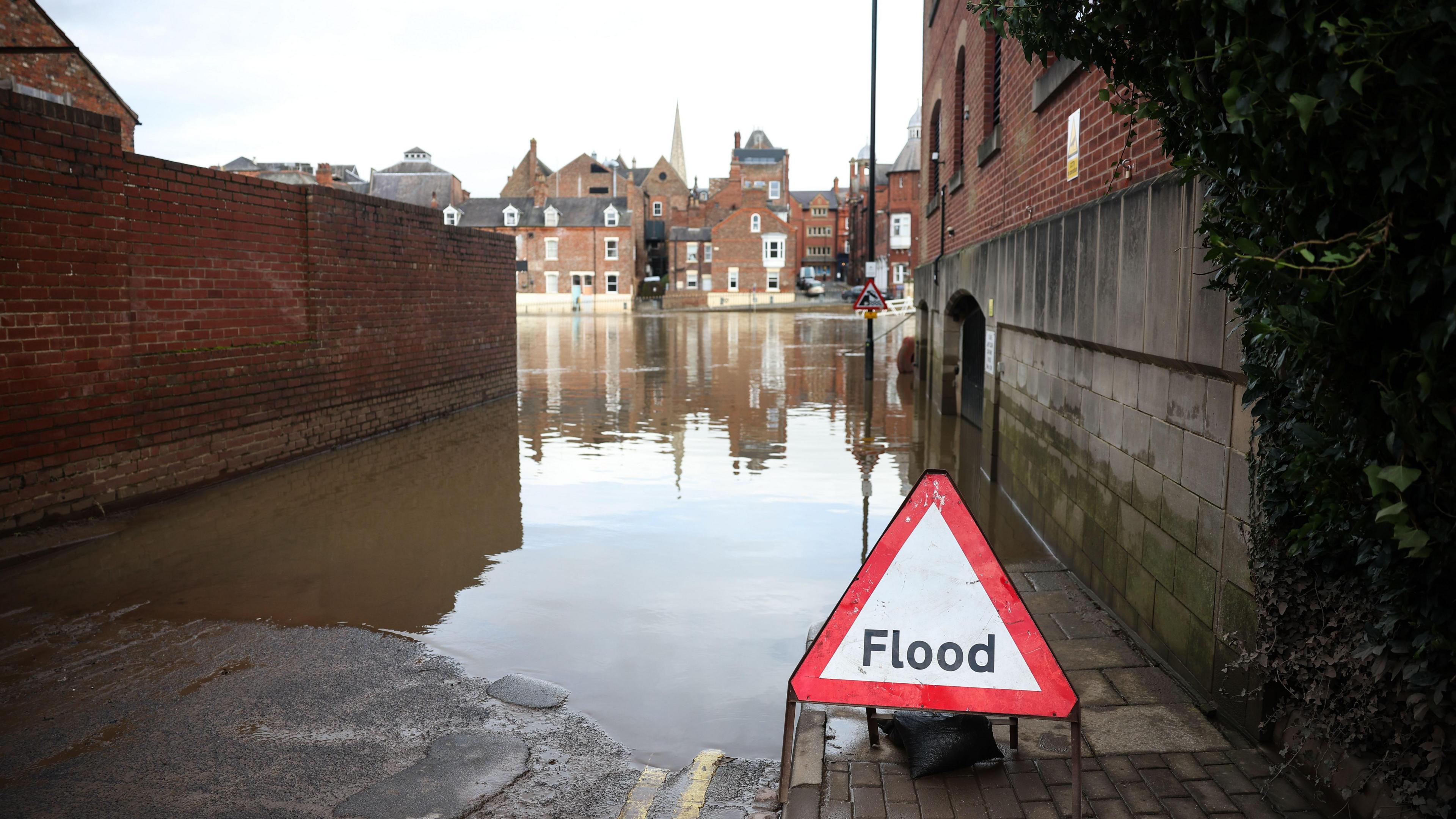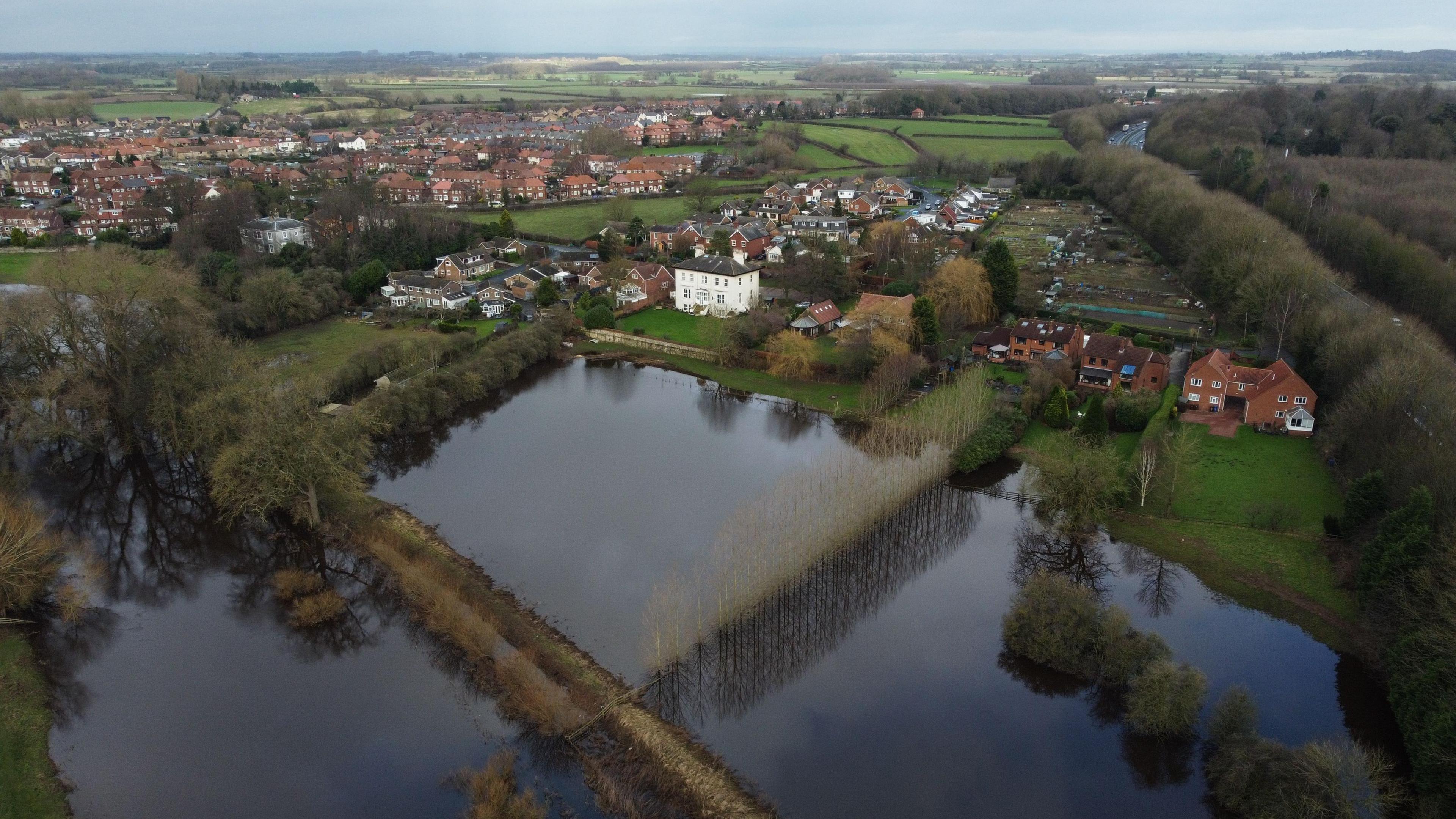Severe weather events force new focus on volunteers

Storms Isha and Jocelyn caused disruption across North Yorkshire in January
- Published
The "increasing occurrence" of severe weather events means there must be a new focus on the role of volunteer emergency responders, a council has said.
There was growing demand for voluntary groups which helped blue-light crews respond to incidents such as the recent storms, North Yorkshire Council said.
Storms Isha and Jocelyn in January left many residents and businesses in North Yorkshire disrupted by high winds and flooding.
A meeting next month is expected to look at how to hone the response to future emergencies of all kinds, improving coordination between all groups involved.
North Yorkshire Council said plans were being drawn up to ensure responses were "even more co-ordinated" between emergency services and volunteers.

The increase in severe weather events was putting growing demand on emergency volunteers, the council said
Matt Robinson, the authority's head of resilience and emergencies, said: “We already have a county-wide team of experienced and skilled volunteers who are available to help with responses to emergencies.
"However, we are seeing more events, especially with severe weather, that require us to become involved, and we are therefore looking to build on the network that is already available and work even closer with local, regional and national volunteer groups and organisations."
Among the taskforces involved in responding to emergencies in North Yorkshire is the major incident response team (MIRT).
The initiative, which was launched more than 30 years ago, is the only dedicated team of its kind in the country and is staffed by 25 trained volunteers.
It is on hand to help with the response to a wide variety of incidents, including road and rail crashes, extreme weather incidents and major health crises such as the Covid pandemic.
'Emotional support'
Caren Horsfield, who lives in Eggborough, near Selby, has been part of MIRT since 1998.
She spent two years helping the communities affected by the Great Heck train crash, supporting bereaved families, survivors and nearby residents.
Ms Horsfield said: "The role involves providing emotional and practical support to people, from those suffering from a bereavement or a major incident such as flooding.
“It can include attending the scene, talking to witnesses and going to court cases or inquests. I have met many people over the years, making friends through lived situations. I’m one of the longest servers."
Mr Robinson said: “While we can provide expert knowledge and support, communities which have been affected are so important in the response.
"They are the ones who know the local area and those people who may need the greatest help.”
Follow BBC Yorkshire on Facebook, external, X (formerly Twitter), external and Instagram, external. Send your story ideas to yorkslincs.news@bbc.co.uk.